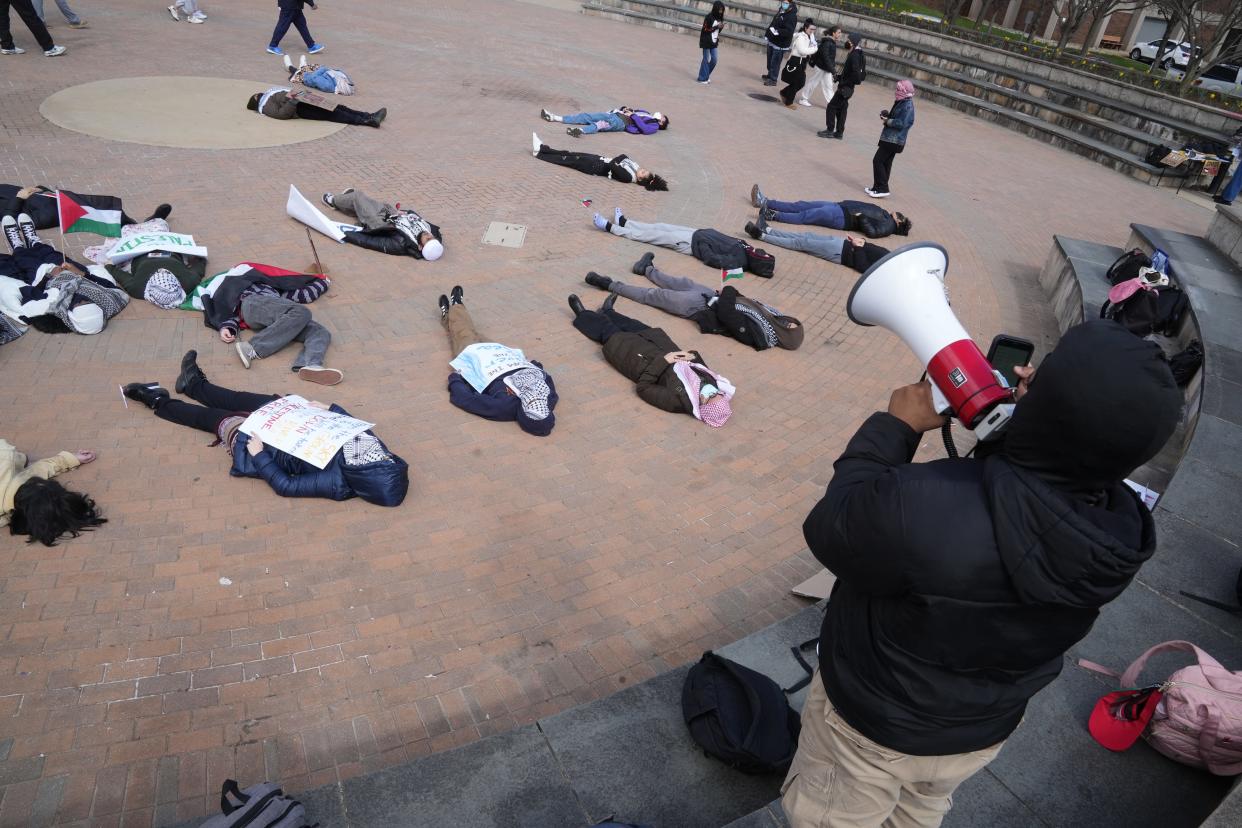Rutgers students at New Brunswick campus vote 'yes' on Israel divestment referendum
Rutgers University students voted overwhelmingly in referendums to call on the administration to withdraw certain investments in Israel and to cancel the school’s partnership with Tel Aviv University, according to reports Tuesday night.
The Rutgers University Student Assembly announced online that 6,538 students at the New Brunswick campus — 80% of those who voted — agreed that the school should divest its endowment fund "from companies that profit from, engage in, or contribute to the government of Israel's human rights violations."
In total, 6,298 students, or 71% of voters, also agreed that the university should end its relations with Tel Aviv University, the student governing body reported. As a result, the Assembly will add the issues to its advocacy agenda.
The referendums, part of spring elections, happened amid a surge of pro-Palestinian activism and divestment campaigns at colleges and universities across the country, fueled by the ongoing war in Gaza. College administrators have largely rejected divestment pushes, and Rutgers is no different. University President Jonathan Holloway has stated that he does not support boycott, divestment and sanctions targeting Israel.

"I believe in engagement, not isolation," Holloway said in a statement earlier this month. "I believe that enlightenment comes from involvement and that lasting progress and peace are the outcomes of diplomacy and discussion."
The referendums followed an intense campaign, led by the Endowment Justice Collective at Rutgers, a coalition of students, faculty and community groups, across the three campuses. They were put forth by student governments, which add issues to their advocacy agendas if approved in referendums.
More than two-thirds of students at Camden and Newark campuses voted yes in their spring elections to divest from companies allegedly involved in human rights violations in Israel. The measure to divest — or selling off assets or holdings — is aimed at weapons manufacturers and security companies, including Lockheed Martin, Boeing and General Electric.
In Newark, 65% also agreed with calls to end the Tel Aviv partnership, but Camden did not hold a vote on the matter. Supporters alleged that the university has ties to Israeli security and arms companies. Critics of the measure said it unfairly restricted educational opportunities and exchanges.
The referendums took place at Rutgers despite pressure from pro-Israel organizations to cancel them. They argued that divestment tries to isolate and delegitimize Israel and stokes division among students at a time when tensions are already high.
Israel divestment campaigns go back two decades, but the efforts grew more vocal and widespread after the outbreak of war on Oct. 7, when Hamas attacked Israel. Nearly 1,200 Israelis were killed and 240 taken hostage. Since then, more than 33,000 Palestinians have been killed in Gaza, with thousands more missing, buried under rubble or held secretly in detention.
The Collective said it has campaigned "for ethical divestment from fossil fuels, apartheid, war and the prison industrial complex” since its founding in 2019. Rutgers considers divestment requests from the university community, if they meet criteria defined by university policy. The Joint Committee on Investments investigates such requests and can make a recommendation to the Board of Governors and the Board of Trustees.
Three years ago, university leadership voted to divest from fossil fuel investments, an action recommended by an ad hoc committee of faculty, students and staff. About 90% of students supported fossil fuel divestment in a referendum.
This article originally appeared on NorthJersey.com: Rutgers University students vote 'yes' on Israel divestment
